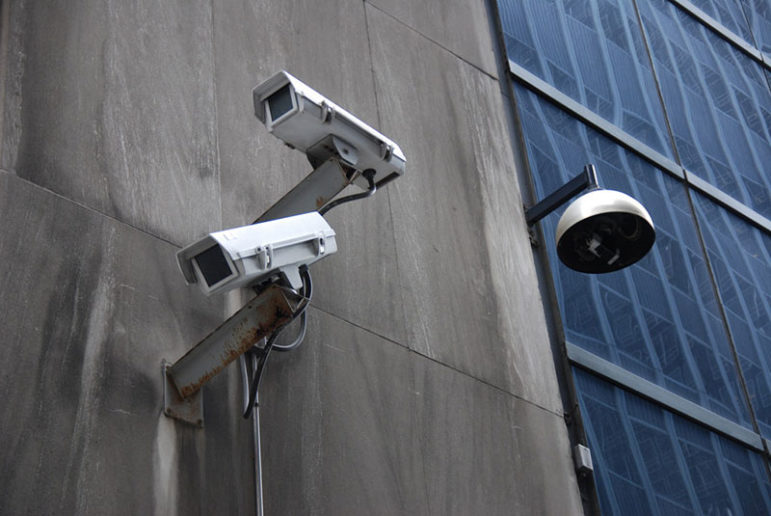
December 1, 2016; Boston Globe
This past Thursday, both the Boston Globe and WBUR’s “On Point” featured journalistic attacks on government surveillance of civilians. Each focused on a single example of what is a global phenomenon, but as the Globe title says, “Surveillance is everywhere now.”
The Globe story was written as a reaction to a plan by Boston Police to purchase software that will harvest data from social media. While the Police goal is to track “criminal activity and threats to public safety,” Globe columnist Yvonne Abraham takes exception to this snooping initiative. She asks, “What if I posted on my disgust about the treatment of Muslims? Or my horror at the president-elect? Or my wish to take part in protests? What if I posted these things and I was a Muslim? Or had a Facebook friend who seems suspect? Would I become suspect, too?”
At the same time Ms. Abraham’s article appeared, WBUR’s nationally syndicated talk show “On Point” featured heated-up host Tom Ashbrook decrying China’s new social credit system. Calling China’s plan “Orwellian” and something out of “science fiction,” Ashbrook’s outrage was egged on by callers who proclaimed that China’s plan was typical totalitarian behavior. Ironically, none noted the interesting connection to the Boston Police story, which first appeared in print last week. In fact, there was no reference to pervasive surveillance. Mr. Ashbrook was anxious to distinguish China’s social credit score from a credit reporting system because the system scarfs up social behavioral characteristics, not just paying bills. Alas, that distinction was breached in the U.S. a generation ago when credit reporting agencies started to pick up online court filings.
It’s too bad that neither news outlet connected the dots. Surveillance abetted by massive data mining is everywhere—in China and the U.S. and around the world. While Boston Police and China’s bureaucrats have differing goals (preventing crime in Boston vs. curbing antisocial behavior in China), the strategy of merging surveillance and data-driven profiling is both pervasive and ubiquitous. Spying on citizens seems good for government, no matter where you live.
Sign up for our free newsletters
Subscribe to NPQ's newsletters to have our top stories delivered directly to your inbox.
By signing up, you agree to our privacy policy and terms of use, and to receive messages from NPQ and our partners.
Consider the Washington Post stories about eavesdropping on public transit or Chicago and Baltimore police surveillance systems. Bloomberg’s overview of the business of databrokers and ProPublica’s exposé of Facebook’s data business make some effort to connect the dots, but the scope and consequences of the government-business surveillance complex is simply hard for most citizens to grasp.
Both Ms. Abraham and Mr. Ashbrook seem shocked to learn the scope of government intrusion on individual lives. Mr. Ashbrook repeatedly asks his panelists if the Chinese seem outraged by the audacious announcement of these social credit scores. The panelists repeatedly make the point that ordinary Chinese don’t grasp the implications. In her article about her hometown police, Ms. Abraham captures a sense of her own complicity: “In throwing our lives online, we’ve made freely available information that it might have taken an authoritarian state to extract in an earlier era.”
The fact is that the most immediate victims are usually the most marginal members of society, as shown in NPQ’s article on tenant blacklisting and ProPublica’s story on predictive policing, “Machine Bias.” The lowest income people are the most likely to fall victim to a data profile aggregated from public records, aerial and audio surveillance of public spaces, social media postings, and third-party reports of late payments and defaults.
Are nonprofits giving enough attention to the privacy risks faced by their program participants? Beyond providing counseling about safe posting practices, nonprofits can do more to protect the privacy of participants. When a person is identified in a “success story” on a nonprofit’s website, is she/he cautioned that this data point may turn up in a profile that a prospective landlord or employer can access? How many charity providers are aware that requiring proof of an impending eviction in order to qualify for emergency assistance could put a tenant on a rental blacklist? With low-income people being most vulnerable to blowback from surveillance and profiling, and with mass media doing little to illuminate the risks, nonprofits need to respond to help protect their constituents.—Spencer Wells













